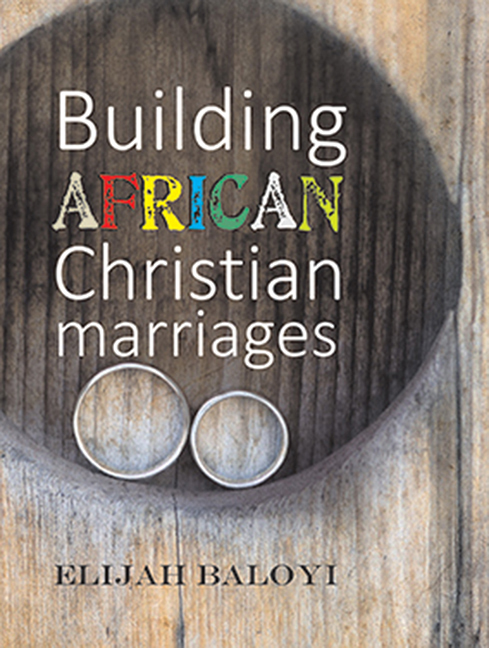Book contents
- Frontmatter
- Dedication
- Contents
- Foreword
- Preface
- Acknowledgements
- Chapter 1 Traditional obstacles in young African marriages
- Chapter 2 Excessive family intervention in African marriages
- Chapter 3 The influence of lobolo on the African marriage union
- Chapter 4 The negative influence of infertility on young African marriages
- Chapter 5 Some biblical teachings about marriage
- Chapter 6 Conclusion
- Appendix A comparison of the African and the biblical perspective on marriage
- References
- Index
Chapter 5 - Some biblical teachings about marriage
Published online by Cambridge University Press: 14 February 2020
- Frontmatter
- Dedication
- Contents
- Foreword
- Preface
- Acknowledgements
- Chapter 1 Traditional obstacles in young African marriages
- Chapter 2 Excessive family intervention in African marriages
- Chapter 3 The influence of lobolo on the African marriage union
- Chapter 4 The negative influence of infertility on young African marriages
- Chapter 5 Some biblical teachings about marriage
- Chapter 6 Conclusion
- Appendix A comparison of the African and the biblical perspective on marriage
- References
- Index
Summary
Introduction
Kimathi (1994:40) mentions that marriage is often called the backbone of society. The point of departure in this regard is the question: What is marriage? In Wilkinson's (1995:2) opinion, marriage can be summarised by two words from Gen. 2:24: ‘leaving’ and ‘cleaving’. I agree with Kimathi (1994:50) that no cleaving can take place without leaving. It is very important first to have a look at the origin of marriage, from whence all aspects concerning a life partner ensue, before considering the Bible's views regarding a life partner.
According to Trobisch (1979:26), Gen. 2:24 stresses that the husband should leave his parents in order to become one flesh with his wife. This does not imply that the wife should not leave her parents; actually she is the first one to leave her parents, because on the wedding day she moves from her parents to join her husband. Although Gen. 2:24 points at the man as the one who should leave, Trobisch (1979:31–32) accepts that they both leave their parents. Misunderstanding the concept of ‘leaving and cleaving’ often causes marital problems for African traditional people. It should be remembered that in the African context, brothers would marry and remain in one big family with their wives and children. This is no longer common, not only because of Western civilisation, but also for economic reasons; for instance, young people relocate to urban areas seek employment. A thorough study of the concept will help traditional people towards a better understanding of the reasons why marriage should ensure that the couple takes responsibility for themselves.
Maswanganyi (s.a.:6) argues that, in the first place, marriage was designed by God and therefore its pattern is found in the Bible. In the second place, one must have a proper relation with the designer, God, to understand this marriage. According to Gen.1:28, marriage was instituted by God Himself. Therefore anything concerning Christian marriage is impossible to understand without the help of God Himself, the Originator. Marriage can be understood as the lawful joining together of one man and one woman as husband and wife, and the two become one – that is the basis for a monogamous marriage.
- Type
- Chapter
- Information
- Building African Christian Marriages , pp. 43 - 68Publisher: University of South AfricaPrint publication year: 2013



